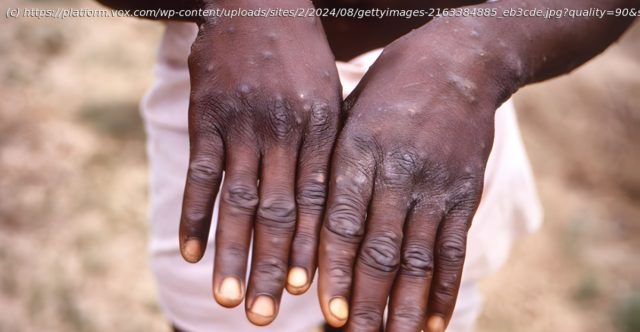Sweden has the first non-African mpox case this year. Will it be possible to get mpox vaccines?
A new and deadlier version of mpox is spreading internationally. In recent months, cases and deaths were being detected only in parts of central and east Africa, but on Thursday, Sweden confirmed its first case. The announcement comes just one day after the World Health Organization declared mpox an international public health emergency for the second time in two years.
The risk to the general public in the US is “very low,” the Department of Health and Human Services stated in the wake of the World Health Organization’s announcement.
Mpox, previously known as monkeypox, is an infectious disease closely related to but much less severe than smallpox, and is suspected to originate in African rodents and non-human primates. Mpox spreads through close contact with an infected person, including from sexual and skin-to-skin-contact. Pregnant people can also pass the virus to their child during pregnancy and after birth. The most common symptom of mpox is a blister-like rash that typically lasts for two to four weeks. Other symptoms include fever, fatigue, muscle aches, cough, and sore throat.
For decades, mpox has caused sporadic cases and outbreaks in Nigeria, the Democratic Republic of the Congo, and several other African countries. But in May 2022, countries outside of Africa, including many that had never dealt with mpox, suddenly started recording cases. That July, the World Health Organization declared the pandemic a public health emergency of international concern for the first time. In just one year, more than 100 countries had recorded nearly 90,000 mpox cases and over 150 deaths.
Fortunately, public health agencies around the world acted quickly to improve disease surveillance efforts, increasing awareness among high-risk populations, particularly men who have sex with men, and encouraging safe sex practices. In the US and Europe, where there were just over 30,000 and 25,000 mpox cases respectively between May 2022 and May 2023; officials also disseminated over a million vaccine doses. Consequently, mpox transmission in most countries quickly dwindled.
In May 2023, the World Health Organization lifted the emergency status and although at the time the public health body no longer considered mpox an international health emergency, countries around the world continued to report cases but much fewer than at the height of the epidemic. In June 2024, there were 175 cases reported across North, Central, and South America; 100 cases were reported in Europe, and 11 cases were reported in Southeast Asian countries, according to a situation report published by the World Health Organization.
In the Democratic Republic of the Congo in central Africa; however, the outbreak continued largely unabated. As of May 2024, there have been 7,851 mpox cases and 384 deaths reported in the country. On Tuesday, the Africa Centres for Disease Control and Prevention declared mpox a continent-wide public health emergency.
The version of the virus circulating in the DRC was different than the one that spread globally. There are two main strains of mpox: clade I, which causes more severe illness and has historically been confined to central Africa, and clade II, which has historically caused infections in west Africa. Clade II was the version that spread to over 100 countries in 2022 and 2023. But clade I was spreading in the DRC. And it is clade I that has now started spreading out of the DRC into four countries in east Africa — Burundi, Kenya, Rwanda, and Uganda — and now Sweden.
Vox diligently covered the outbreak of mpox, formerly known as monkeypox, back in 2022. Check out our previous work here:
The new international spread of mpox clade I is spurring concerns that a deadlier mpox pandemic might be on the horizon and triggered the Africa Centres for Disease Control and Prevention and the World Health Organization to designate the ongoing mpox outbreaks as health emergencies.
Home
United States
USA — Political Mpox never stopped spreading in Africa. Now it’s an international public health...






